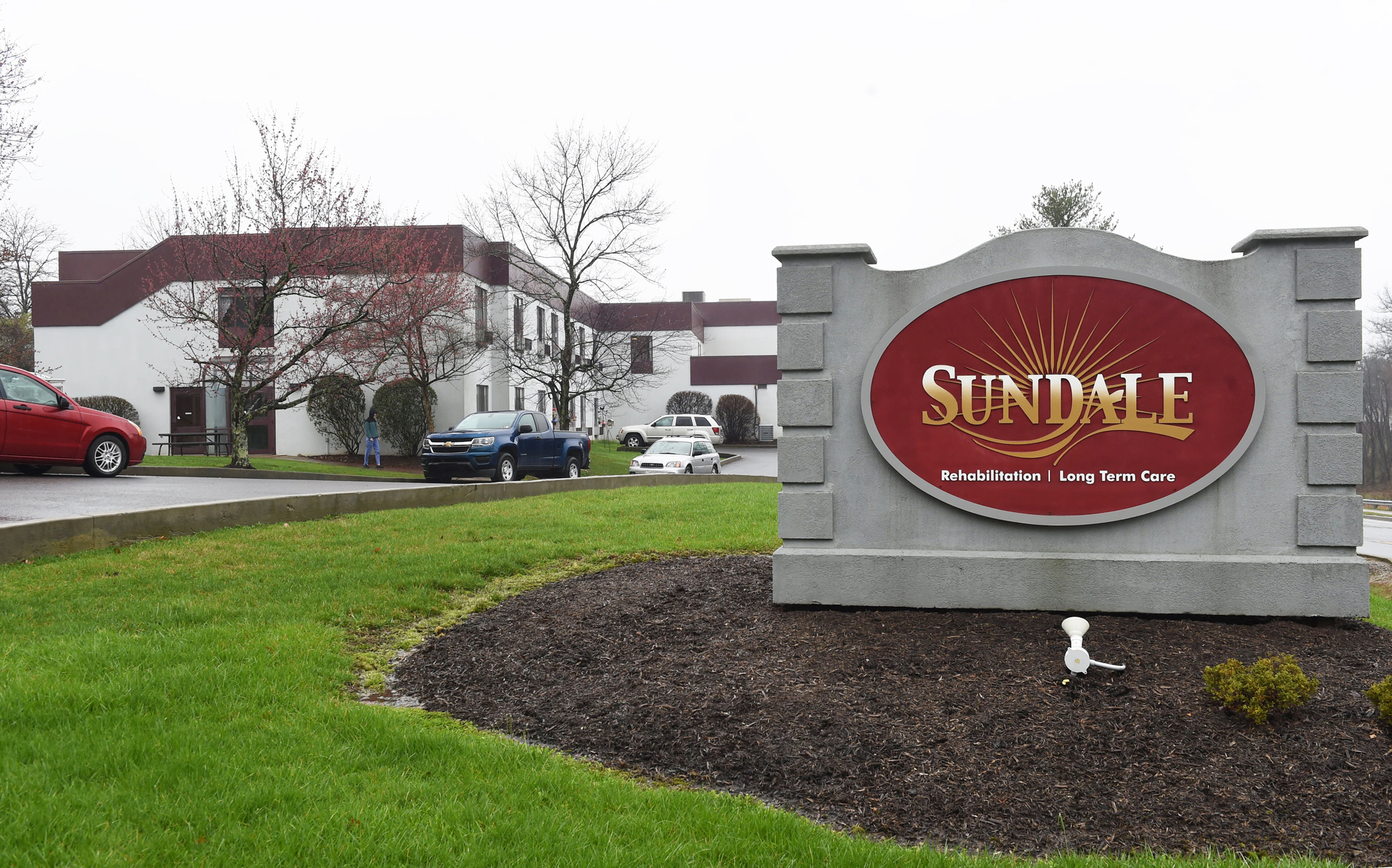While Monongalia County leads West Virginia in confirmed COVID-19 cases, Sundale Rehabilitation and Long-Term Care — where the local outbreak started in March — remains free of the virus.
Dr. Carl Shrader, Sundale’s medical director who is also a West Virginia University Medicine family physician, attributes Sundale’s COVID-free status to regular testing and continued safety measures.
Since Monongalia County reported a spike in confirmed cases approximately a month ago, Shrader stopped in-person visits right before the July 4 holiday, a policy he hopes to lift — possibly later in August.
“We’ve been watching the Mon County numbers,” said Shrader, adding Zoom calls with residents, families and friends, could begin again in early August.
“There was minimal backlash,” he said when asked about canceling face-to-face visitation. He also hopes to soon resume outside visits, using the plastic boxes donated by City Neon of Morgantown. This could also happen in early August.
Because there is no visitation at Sundale — where the average age of its 90 residents is 85 — and to ensure resident safety, anyone coming to the facility have to be let in and out by a staff member. They also have their temperature taken.
Despite Sundale’s restrictions on outside visitors, Shrader said the community continues to be warm and welcoming to employees, which was not the case when the pandemic first hit the area.
“It’s amazing how supportive the community has been to us,” he said. “This virus has either brought out the best or the worst in people.”
Changes since March
Shrader said there is a world of difference between what is known now about the novel coronavirus and what was known when it first struck the state earlier this year.
Sundale’s last confirmed case of COVID-19 was resolved at end of May when negative results came back on the last resident, an 83-year-old asymptomatic woman. At one time, Sundale had more than 50 cases of COVID-19 between residents and staff, plus five virus-related deaths.
Shrader said he would now not prescribe hydroxychloroquine or chloroquine, both thought early in the pandemic to be a wonder drugs that would stop the virus.
Recent research, however, has shown the drugs are not effective. Plus, a number of health organizations — including the U.S. Food and Drug Administration — have cautioned against use of hydroxychloroquine or chloroquine for COVID-19 outside of the hospital setting or a clinical trial due to risk of heart rhythm problems.
“You don’t give it to somebody before they are infected,” he said.
He said the virus was also thought to affect a patient’s breathing. Instead, it has been discovered COVID-19 affects blood vessels, making the oxygen levels in blood drop. Shrader said he found success treating affected Sundale residents with oxygen therapies.
But it’s been the state-mandated testing at nursing homes that has been the difference maker, Shrader said. By continued testing and isolation, Sundale was able to rid itself of COVID-19.
Now in West Virginia, if a nursing home has been exposed to COVID-19, then it must test residents and staff every week until they have two weeks of negative results, a requirement that was developed because of what happened at Sundale, he said.
This past week, the facility’s 90 residents were tested for COVID-19, and all results were negative. Roughly half of Sundale’s 150 employees have been tested in the last seven days and all results have been negative. Results are pending on the remaining employees.
As of Friday, Monongalia had 869 confirmed cases of the virus, the highest in the state. Statewide, there are more than 100 people hospitalized with the virus with 40 in intensive care and 19 on ventilators, according to news reports.
TWEET @41Suzanne




